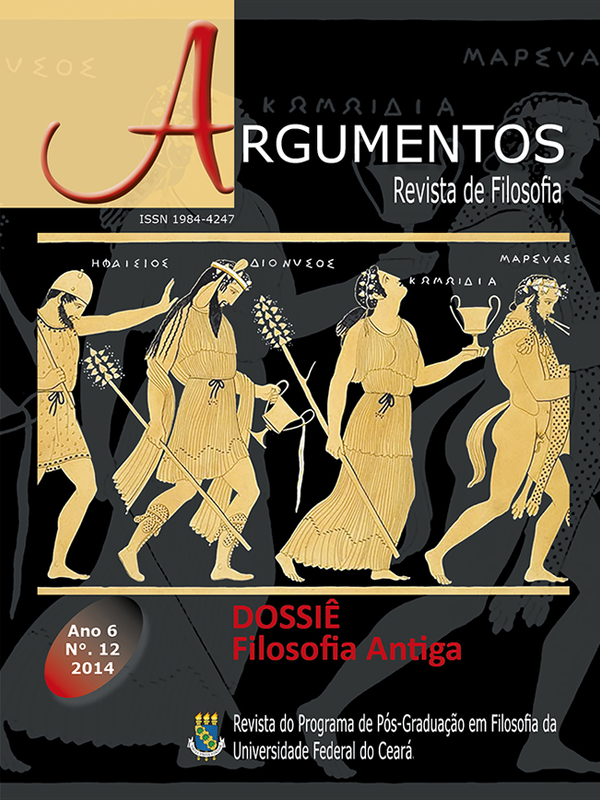Mania and epithymia in Plato: a study of Phaedrus and Banquet
Keywords:
Eros. Mania. Epithymia. Plato.Abstract
Plato in the Phaedrus dialogue, presents Eros in the role of an irrational force that has a connection with mania (delirium), whose various forms, according to the second speech of Socrates, are not all negative. In the Banquet, Eros takes a special way, a constitutive dimension as epithymia (Wish). Indeed, the notion of Eros as both positive form of mania, as of epithymia has a prominent place in the philosophy of Plato, it takes the role of a key driver of human life, including there in the very philosophical activity.Downloads
Published
Issue
Section
License
Argumentos magazine is licensed under an International Creative Commons Attribution License.
The Magazine uses CC BY inclusion
1) The authors retain the copyright granted to the magazine or the right to initial publication, with the work regularly licensed under the Creative Commons Attribution, which allows the sharing of the work with acknowledgment of authorship and initial publication in this magazine.
2) The authors are authorized to contract additional applicable contracts, for non-exclusive distribution of the version of the work published in this journal (for example, publication in the institutional repository or as a chapter of the book), recognition of authorship and initial publication in this journal.
3) Authors are authorized and encourage to publish and distribute their work online (for example, in institutional repositories or on their personal pages) at any time before or during the editorial process, as they can generate productive changes, as well as increase the impact and reference of published work.




.jpg)










._._3.png)
1.jpg)
._._._.png)
